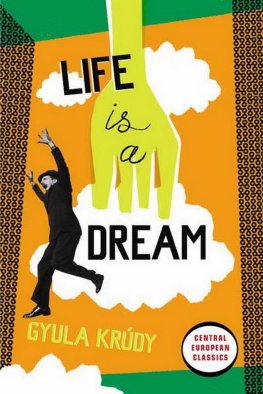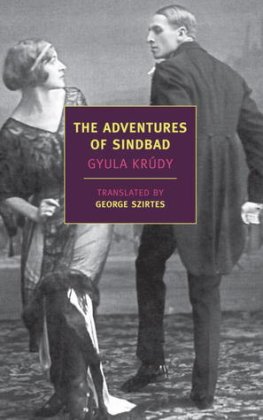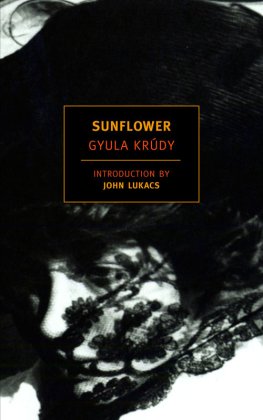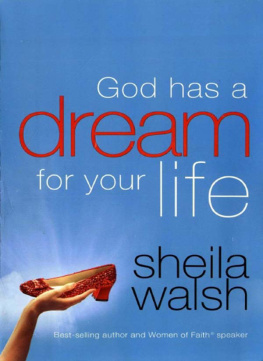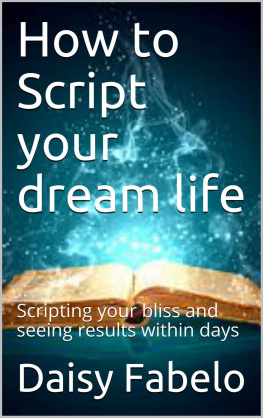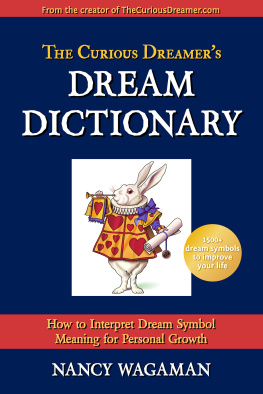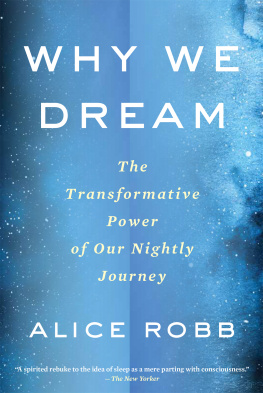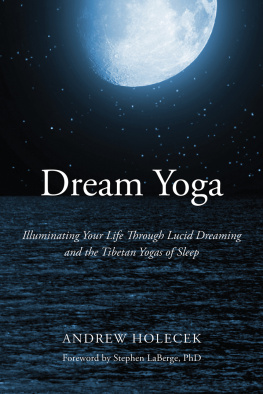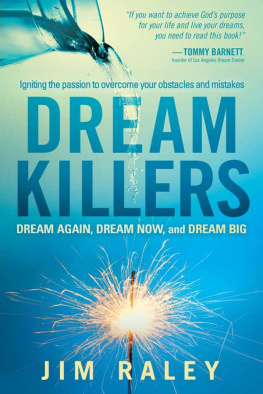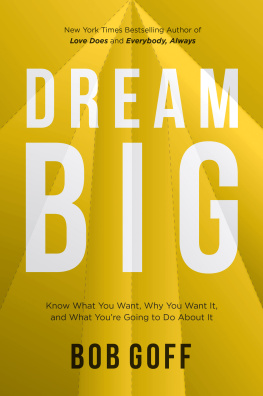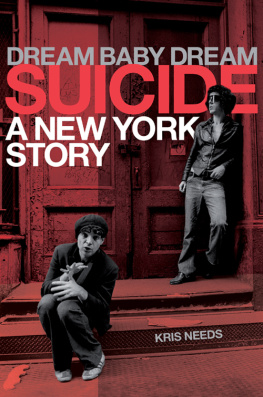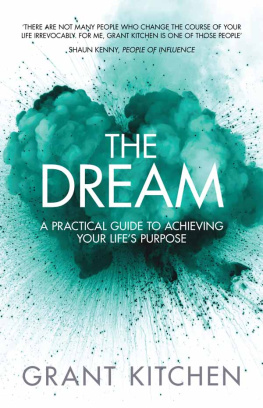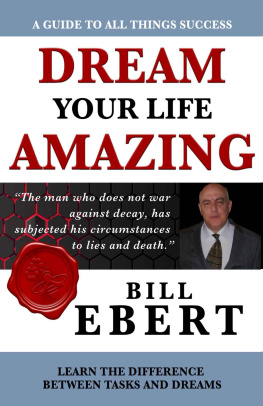Gyula Krúdy - Life Is A Dream
Here you can read online Gyula Krúdy - Life Is A Dream full text of the book (entire story) in english for free. Download pdf and epub, get meaning, cover and reviews about this ebook. year: 2010, publisher: Penguin Classics, genre: Prose. Description of the work, (preface) as well as reviews are available. Best literature library LitArk.com created for fans of good reading and offers a wide selection of genres:
Romance novel
Science fiction
Adventure
Detective
Science
History
Home and family
Prose
Art
Politics
Computer
Non-fiction
Religion
Business
Children
Humor
Choose a favorite category and find really read worthwhile books. Enjoy immersion in the world of imagination, feel the emotions of the characters or learn something new for yourself, make an fascinating discovery.
- Book:Life Is A Dream
- Author:
- Publisher:Penguin Classics
- Genre:
- Year:2010
- Rating:3 / 5
- Favourites:Add to favourites
- Your mark:
- 60
- 1
- 2
- 3
- 4
- 5
Life Is A Dream: summary, description and annotation
We offer to read an annotation, description, summary or preface (depends on what the author of the book "Life Is A Dream" wrote himself). If you haven't found the necessary information about the book — write in the comments, we will try to find it.
Gyula Krúdy: author's other books
Who wrote Life Is A Dream? Find out the surname, the name of the author of the book and a list of all author's works by series.
Life Is A Dream — read online for free the complete book (whole text) full work
Below is the text of the book, divided by pages. System saving the place of the last page read, allows you to conveniently read the book "Life Is A Dream" online for free, without having to search again every time where you left off. Put a bookmark, and you can go to the page where you finished reading at any time.
Font size:
Interval:
Bookmark:
Gyula Krdy
Life Is A Dream
About the Authors
Gyula Krdy (18781933) was born in the small town of Nyregyhza. Krdy moved to Budapest at the age of eighteen and lived there by his pen for the rest of his life. Starting out as a precocious journalist, he soon turned to writing short stories and novels. After 1919, despite publishing many of his greatest works, he lived in reduced circumstances with his second wife and young daughter, and died in poverty and obscurity. Sndor Mrais novel Szindbad Goes Home (1943), a fictional account of the last day of Krdys life, jump-started the revival of interest in his oeuvre, which is now recognized as one of the outstanding monuments of Hungarian literature.
John Batki was born in Miskolc, Hungary, and has lived in the United States since the age of fourteen. He has published several volumes of translations from twentieth-century Hungarian literature, including the poems of Attila Jzsef, and prose by Gyula Krdy, Ern Szp, Gza Ottlik, Ivn Mndy and others.
~ ~ ~
The translator wishes to thank the editors of Southwest Review and Subtropics, where two of these stories, The Waiters Nightmare and The Landlady, or the Bewitched Guests first appeared. Last Cigar at the Grey Arabian and The Journalist and Death first appeared in Hungarian Quarterly (Budapest), and special thanks go to the editor, Zsofia Zachar.
Translators Note
Az let lom (Life Is a Dream), Gyula Krdys last volume to appear in his lifetime, was self-published by the author in December 1931.
In October 1931 the English press tycoon Lord Rothermere donated the sum of 1,000 to the Hungarian PEN Club, to be awarded to the author of the years most outstanding literary work. The poet Dezs Kosztolnyi, president of the Hungarian PEN, originally intended the prize for the fifty-three-year-old Gyula Krdy, author of more than fifty volumes. Formerly a celebrated writer of bestsellers, Krdy at the time lived in obscure poverty with wife and daughter in a crumbling hovel in Obuda on the outskirts of Budapest. Since he had no book published that year, and no publisher, Krdy selected nine of his finest stories from recent years and had them published at his own expense, to qualify for the prize. On 23 December the printer contracted to produce 1,000 copies of the 254-page book, fifty copies to be delivered by noon on 31 December.
The stories Krdy chose for this most beloved book of his draw upon his dearest and finest imaginings about eating, digestion, wine, illness, lifes real dreams, written in 19258, including one story from the Szindbad cycle (The Undead, 1925), plus The Green Ace, a novella from 1930.
Received with great critical acclaim, Life Is a Dream assured the authors eligibility for the prize. Literary politics and dissension among the directors of the Hungarian PEN Club resulted in the division of the prize money into two halves, to be disbursed over two years, and to be shared by two authors each year. To further diminish his pittance, Krdy was requested to voluntarily relinquish 10 per cent of the award to be disbursed to needy writers. Nearly half of the 225 he ultimately received was swallowed up by the printers bill. The municipal utility authority also claimed its share for unpaid electric bills
In 1957 the book was reissued by Szepirodalmi Konyvkiado in Budapest, with the addition of a tenth piece, Last Cigar at the Grey Arabian. This memorable story, a complementary twin to The Journalist and Death, was most likely left out of the first edition because of lack of space. These two stories are probably Krdys best known and most anthologized works, and are followed by a succession of tales that delight and astonish by opening the hidden dimensions of dream behind the seemingly ordinary events of everyday life.
John Batki,
Syracuse, New York
December 2008
Life Is a Dream
Last Cigar at the Grey Arabian
On this day the Colonel had to shoot someone, on behalf of the Casinos directors; the decision had been made in the English Room (so named after a visit by the Prince of Wales).
The duel was to take place in the barracks that afternoon, and the man who had insulted the Casino was not to leave the premises alive.
Very well, Ill shoot the journalist, the Colonel said with a shrug.
But he was becoming devilishly hungry. This was the sum total of his nervousness on the day of the deadly duel. An abominable, unprecedented hunger now overpowered him. His stomach hungered, and so did his mouth; still half asleep, his lolling tongue explored his mouth, savouring comestibles he had never tried, never tasted before. He had been told that the journalist condemned to death in the Casinos English Room the sentence to be executed by the Colonel, the deadliest shot in the land this journalist was reputed to be such a pauper that he ate his evening meal of crackling with his fingers, from a paper bag, the salt kept in a vest pocket, the radishes and onions waiting in a desk drawer until the crackling was gone. Naturally the man could not afford decent wine, and so he would have to walk a long distance to find a cheap dive where he could slosh down some cold wine to quench the flames in his stomach.
The Colonel, who normally gave questions of life and death about as much thought as a bishop does in a game of chess, was dreadfully hungry now and overcome by cravings usually attributed to pregnant women. Ill be eating quicklime before long! he brooded.
Today he wore civilian clothes under a roomy rain-cape and his canary yellow shoes creaked; for this pre-duel stroll in the rainy city he carried an umbrella-cane, and kept glancing into closed hackney cabs, convinced that no one would recognize him wearing mufti. Since he would never speak of these hours to anyone, after a certain amount of hesitation and cautious reconnaissance he decided at last to enter a butchers shop in an outlying district of the city. His greying moustache drew an unenthusiastic greeting from the butchers wife the typical butchers wife in her greasy white apron, sleeves rolled up to the elbows, revealing sour-smelling forearms. The wedding band on her finger had long ago cut deeply into the flesh, attesting that here was a housewife of some experience, just as the rings of former seasons recede into the trunk of a tree. Freshly fried crackling steamed, fragrant and tempting, in front of her small nose. The Colonel pointed at the platter.
Ill take a pound of that.
That will be too much, sir, said the woman. The intelligence of her intonation startled the Colonel. A few ounces of this crackling will be plenty for a snack. Otherwise I cant take responsibility for your stomach. This isnt light food.
Well, in that case give me twenty kreuzers worth, growled the Colonel, who did not go in for too much chit-chat. The butchers wife reached for a volume of poems and tore out a few pages to form a paper cone. This reminded the Colonel of his journalist, who was rumoured to write poems.
Whose poems are these? he inquired, as if his civilian disguise demanded that he disguise his profession too, in front of the butchers wife.
We used to have a bearded old man come around here and he brought me poetry books. Perhaps you know him. His name was Vajda Janos Vajda.
I know him, said the Colonel, blushing to have to tell a lie. But no one could expect him to engage in a lengthy discussion with a butchers wife on outer Ulloi Road.
The butchers wife picked a few choice green peppers from a basket and cut off a hefty hunk of rye bread. Here, take these along, she said generously, as she handed over the packages wrapped in paper for the Colonel to tuck under his cape.
The Colonel did not know why he was obeying this woman he had never seen before. Is there some tavern around here where I could eat this? he inquired with a touch of condescension.
Font size:
Interval:
Bookmark:
Similar books «Life Is A Dream»
Look at similar books to Life Is A Dream. We have selected literature similar in name and meaning in the hope of providing readers with more options to find new, interesting, not yet read works.
Discussion, reviews of the book Life Is A Dream and just readers' own opinions. Leave your comments, write what you think about the work, its meaning or the main characters. Specify what exactly you liked and what you didn't like, and why you think so.

